Earlier this year, the Education Team at the Wikimedia Foundation launched the first edition of the Wikimedia & Education Greenhouse. This pilot project uses a startup incubator model alongside a rigorous online course in Wikimedia & Education project management to equip Wikimedians with the skills, knowledge and support they need to bring their ideas to life and scale them into high-impact education initiatives in their communities. It supports project leaders to structure their activities on the idea of knowledge equity, considering the challenges and opportunities of their Wikimedia community and their local education contexts.
On July 1st the first cohort of participants started their learning journey in the Wikimedia Education Project Management online course. Since then over 60 Wikimedians from more than 35 different countries have engaged in discussions and activities that connect the Wikimedia projects with the global education field. Here are a few highlights of the first unit in our online course:
Module 1 – Wikimedia & Education, knowledge equity, and SDG4
In this module, participants explored the connection between Wikimedia projects and the Sustainable Development Goal 4: Quality Education. They discussed how Wikimedia projects can be implemented in their local education fields to foster 21st century skills, and the different challenges in access to digital technologies. The participants demonstrated their ability to advocate for the value of Wikimedia in education by developing mock-up tweetstorms for different audiences in the education sector: policy makers, teachers, students, parents, etc. (you can find a couple of them if you search for #WikimediaEducation on Twitter!)
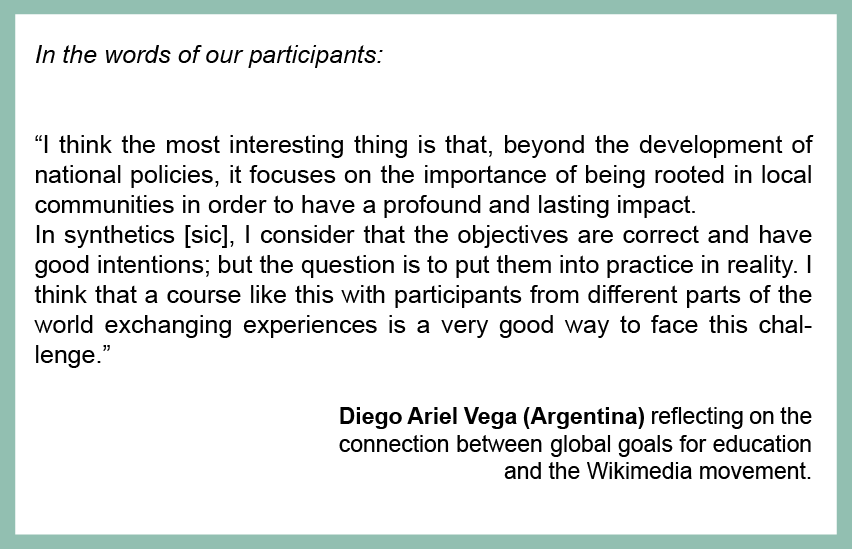
Module 2 – Collaborating with educators and education systems
How would you describe the quality of education in your country? What does the typical day of a teacher look like? How do you approach collaboration with teachers for Wikimedia education projects? These were some of the questions that our participants explored during this module. For this purpose, participants contrasted the different education policy documents available through UNESCO’s Planipolis portal and what they look like in practice. They interviewed teachers in their local communities and they practiced writing letters for school administrators arguing for the inclusion of Wikimedia education activities by connecting them with national education policies.
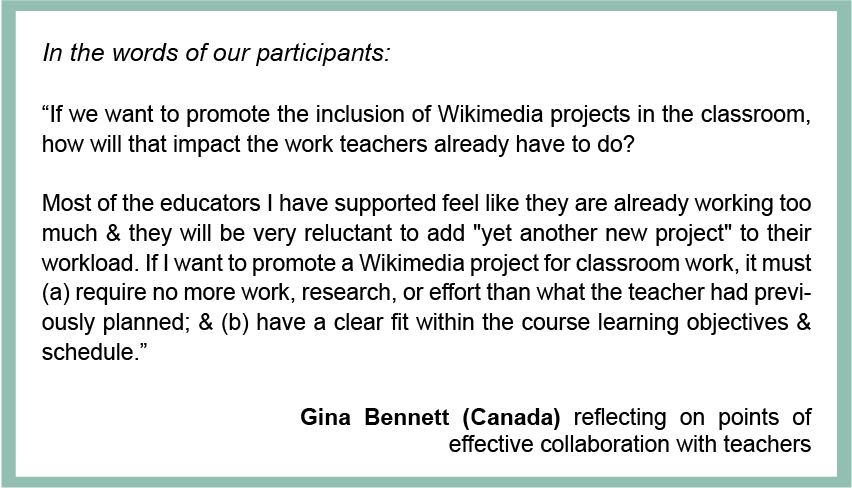
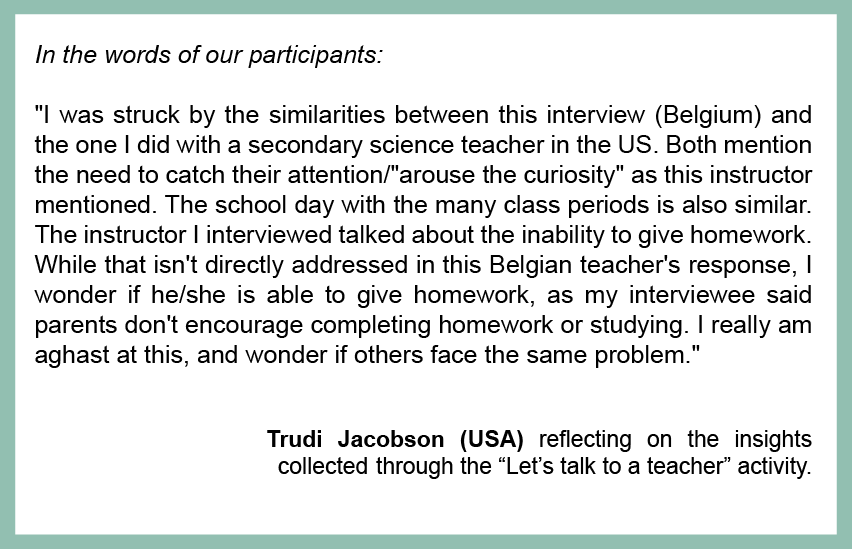
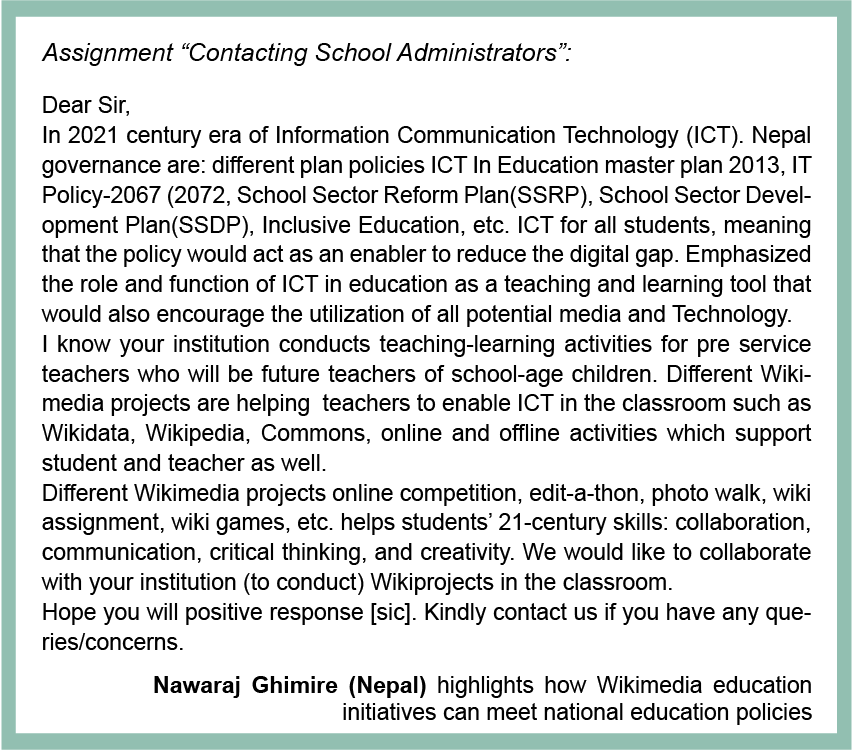
Module 3 – Training education actors on Wikimedia education projects
In this module, participants analyzed and proposed workshops and training programs from a human-centered design perspective. They shared examples of successful Wikimedia education initiatives in their local contexts, these went from Art+Feminism editathons with teachers and students to workshops for teachers designed to dispel the myths around Wikipedia in education. They discussed the challenges they face in engaging with local education actors, the important lessons they have learned, and they shared pending questions they’re seeking answers to.
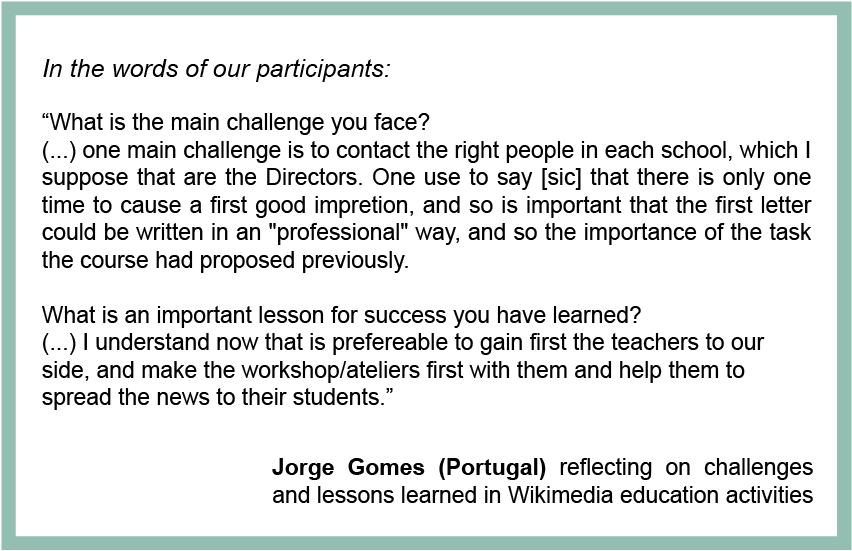
Module 4 – Working with the Wikimedia community on education projects
In the final module of the unit, participants reflected on the Wikimedia communities they are part of and how to facilitate communication and collaboration between these communities and the education actors they are engaging through their initiatives. They shared examples of successful engagement strategies for Wikimedia education projects such as: using different communication channels on and off Wiki (mainly social media groups), creating Project pages and templates for their initiatives and participants, connecting with well-established WikiProjects, and fostering peer mentorship opportunities between more experienced editors and newcomers.
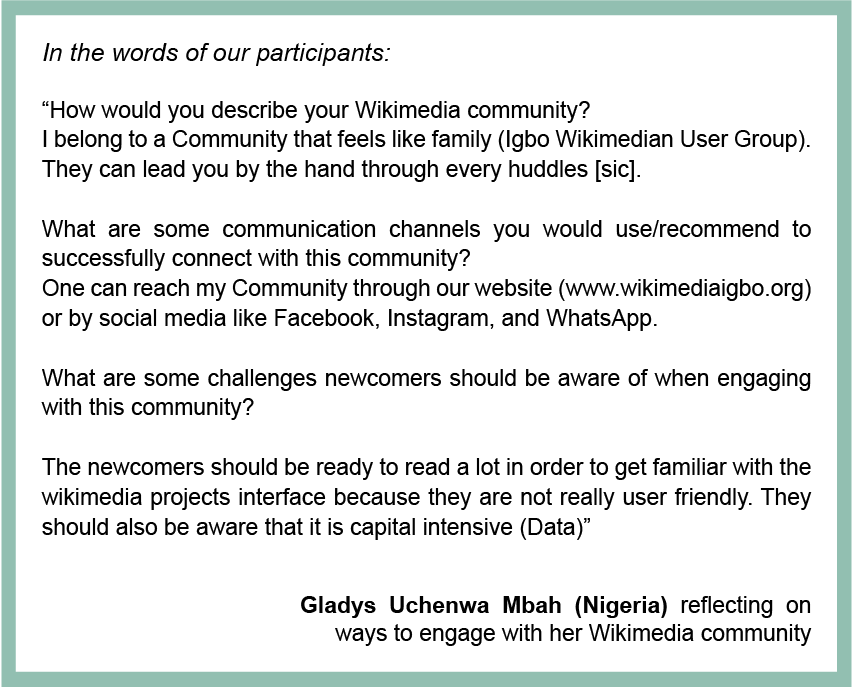
Additionally through a survey conducted halfway through Unit 1 we learned that: the elements of the course our participants enjoy the most are sharing ideas and experiences with the diverse cohort of international participants (56% of respondents), and the engaging activities and resources provided in the course (31% of respondents); the aspect they find most challenging is finding time to go over the resources and participate in the forums (56% of respondents); however, 100% of respondents express they’re motivated to continue with the course! This is not surprising: when we asked participants to rate how much they are enjoying the course from a scale of 1 to 5 (1 being “not enjoying it all” and 5 “enjoying it very much”) the average score we got was 4.19!
Currently, our participants are starting Unit 2 of the online course where they will develop their project management skills to create/improve a project proposal for a Wikimedia education initiative. Stay tuned for the coming updates! Do you want to participate in the course? You can do so by completing this form!
We would like to extend our gratitude to Simona Ramkisson, Asaf Bartov, and Shani Evenstein for their input in curriculum development and for leading some of the virtual classes that accompanied this unit, as well as to the group of volunteer collaborators who helped us test the platform before its launch. You’re awesome!
Image credits: María Cruz, Victor Ostrovsky / Wikimedia Foundation [CC BY-SA 4.0], via Wikimedia Commons

Can you help us translate this article?
In order for this article to reach as many people as possible we would like your help. Can you translate this article to get the message out?
Start translation